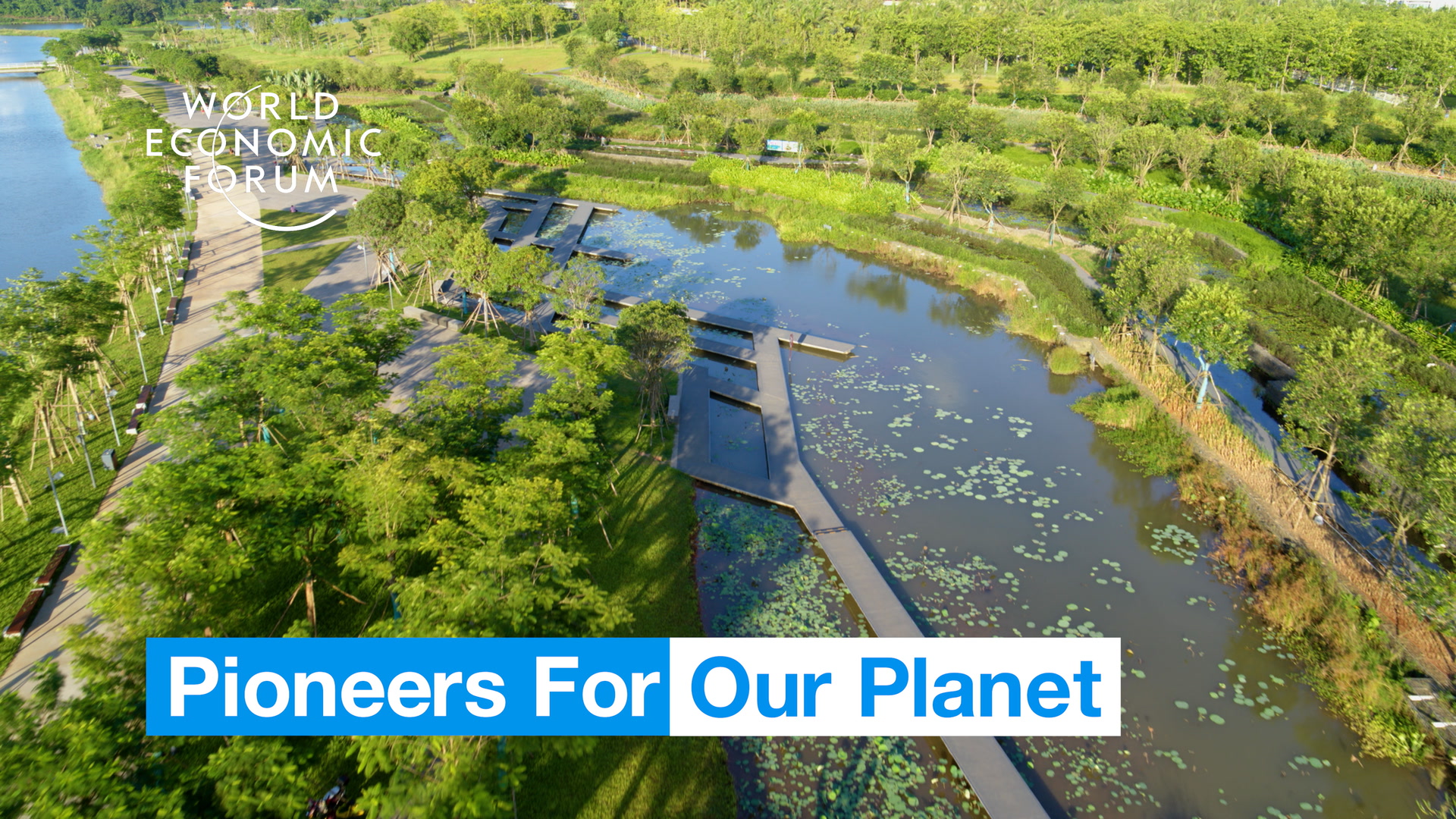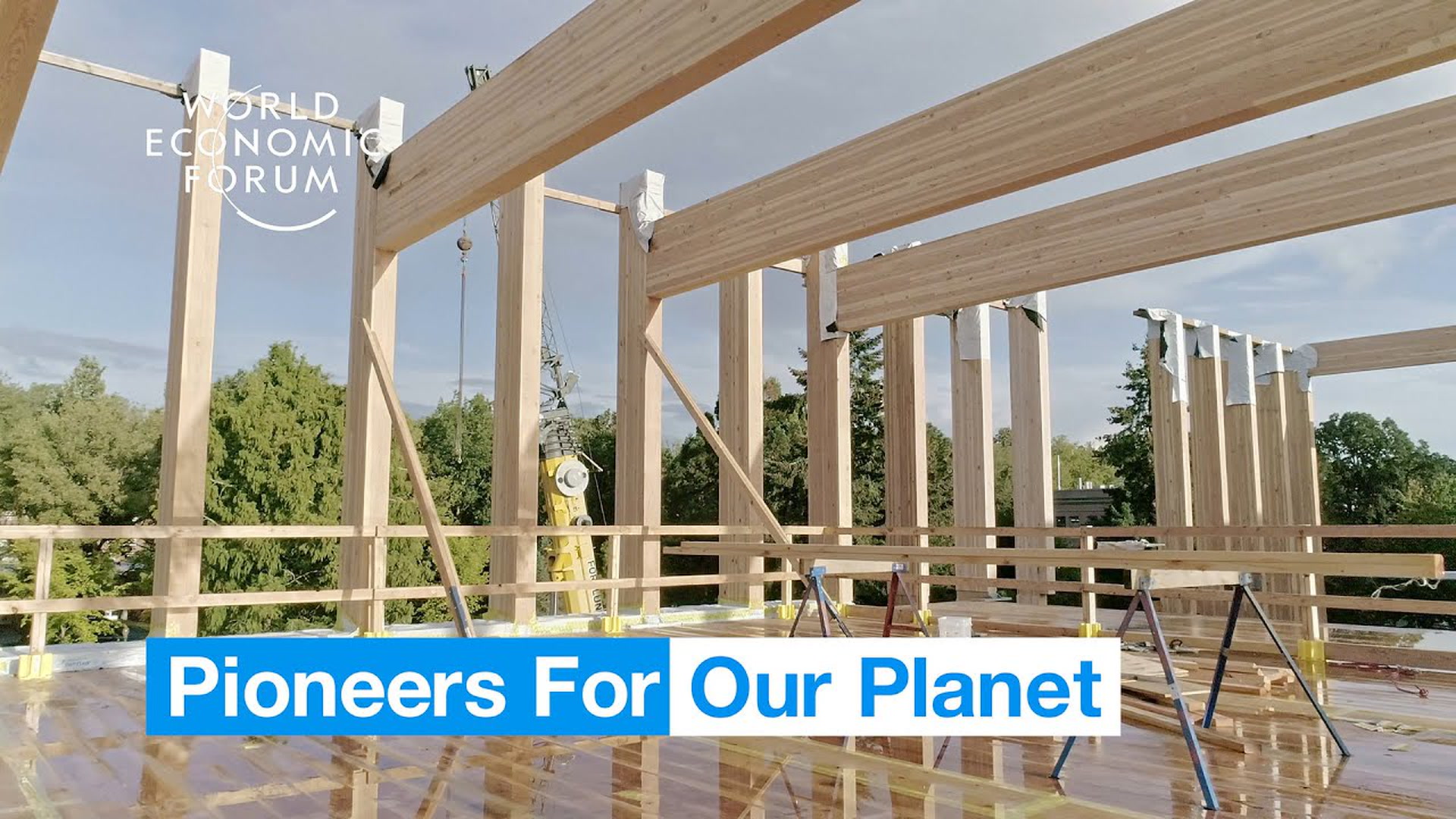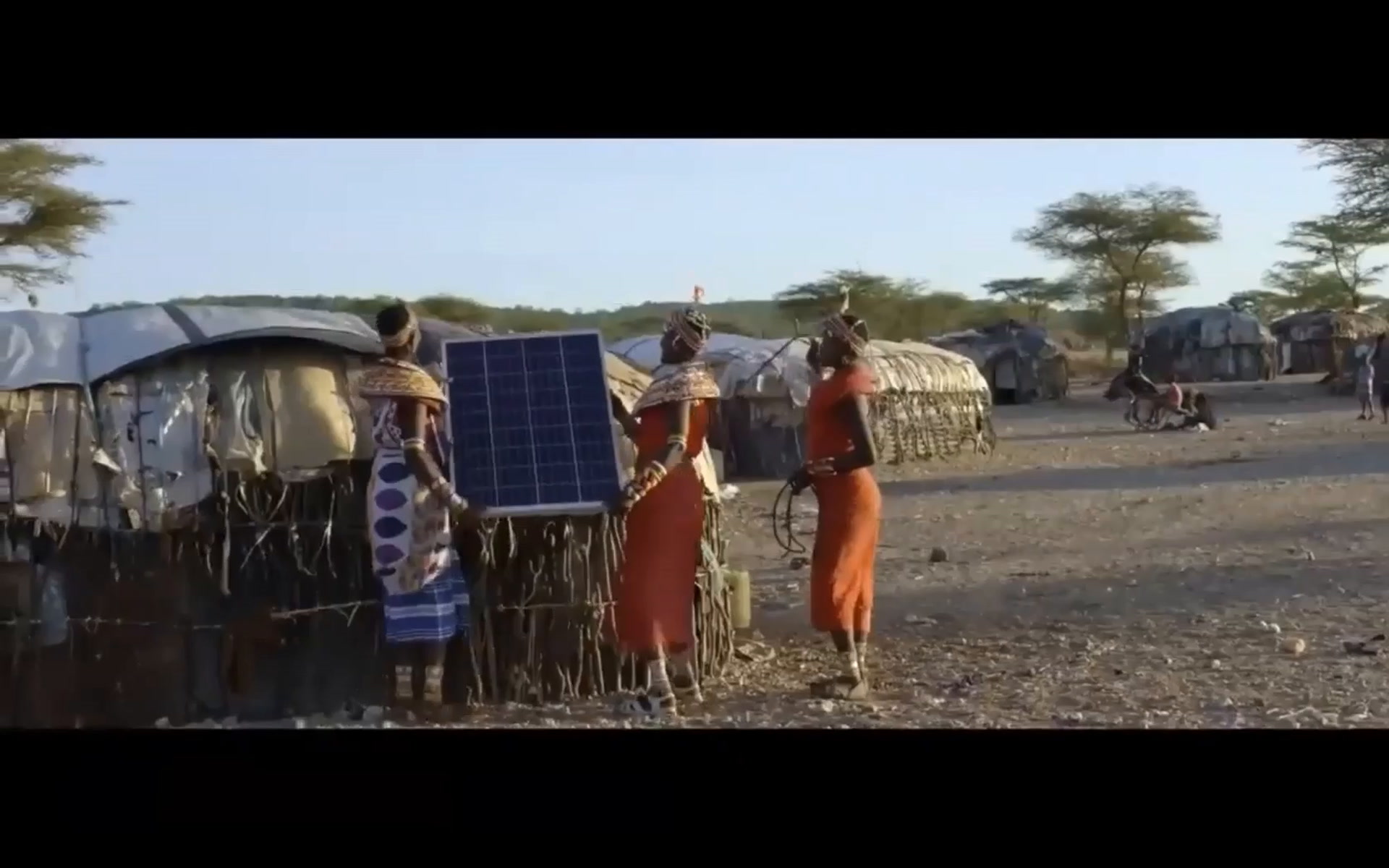
Unlocking the potential of IoT for Brazil small and medium businesses
The Forum, the Ministry of Economy and the State of São Paulo are collaborating to assist small and medium manufacturing firms in their implementation of IoT for Brazil.
Mobilising global action for more inclusive and sustainable cities.
The COVID-19 pandemic has forced us to rethink the way we live. It is transforming industries and how we do business. It is intensifying social and environmental crises in our communities. And it is challenging fundamental assumptions and global trends, such as urbanization, that have cemented over more than 200 years since the First Industrial Revolution.
As the world prepares to build back stronger and better, we have new tools available to support this effort. A growing suite of connected devices and smart technologies, commonly referred to as the internet of things (IoT), offers a means to reimagine and transform physical spaces—our homes, offices, factories, farms, healthcare facilities and public spaces—to be more adaptive, customized and even anticipate new needs before they arise. New models for public-private cooperation and shared community services are also changing the way in which cities provide services to residents and business, blurring the lines between government and the private sector.
The World Economic Forum's Platform for Shaping the Future of Urban Transformation is working with more than 100 global partners to ensure that these changes deliver a future that is more sustainable, resilient and prosperous for all. This includes, for example, initiatives with the Government of Brazil to support small and medium-sized enterprises and advance social mobility, collaboration with the G20 to modernize city services, and partnerships with wearables companies to help manage and avert the spread of COVID-19.
Key initiatives:
The events of 2020 have forever changed the trajectory of IoT and its role in society. New applications of IoT – from public health surveillance to global supply chain integration – are delivering enormous benefits while also drawing attention to significant gaps in the governance of these technologies. Together with global leaders from across the IoT ecosystem, our Platform is driving collective action to help realize the potential of IoT and build a connected world that benefits all. To learn more, visit https://www.weforum.org/connectedworld
COVID-19 and the global economic crisis is forcing cities to revisit and recalibrate long-term strategic plans and economic development strategies. Our Platform provides an independent and impartial forum for public-private collaboration on these matters while also advancing new frameworks and policy tools for improved planning. Complementing this work, our Platform serves as secretariat for the foremost global initiative to advance the responsible and ethical use of smart city technologies with partners representing more than 200,000 cities and local governments. To learn more, visit https://www.weforum.org/cities
Chief executives from the world's leading real estate companies have identified four key pillars—livability, sustainability, resilience and affordability—that are necessary to drive a transition of the real estate ecosystem and the built environment. Our Platform curates and convenes public and private sector stakeholders to advance these changes at a local level. To learn more, visit https://www.weforum.org/realestate
Featured Blog series: Cities of Tomorrow
Our Partners comprise the world's 1000 leading companies, developing solutions to the world's greatest challenges.
The Forum, the Ministry of Economy and the State of São Paulo are collaborating to assist small and medium manufacturing firms in their implementation of IoT for Brazil.
Led by the Forum, the G20 Global Smart Cities Alliance on Technology Governance is the largest global initiative of its kind, promoting smart city governance
The World Economic Forum is convening stakeholders with a role to play for global cities to have a chance of reaching the net zero carbon goal for by 2030.
The C4IR Network centres are building scalable models to positively pilot and integrate regulations in law and industry standards.
Cybersecurity in aviation: Airlines, airports and aircraft manufacturers must be protected. The Forum launched an initiative to improve cyber resilience.
The World Economic Forum is creating innovative urban partnerships, which are helping residents find a renewed focus on their physical and mental health.
The World Economic Forum is fostering new approaches to infrastructure investment by maximizing private-sector investment in infrastructure. This is being done by connecting multilateral ...
The World Economic Forum’s Centre for the Fourth Industrial Revolution Network is working with governments, technology experts, NGOs and leading companies around the world to enable emerg...
Catalysing public-private action towards a shared & decarbonised urban mobility future According to current trends, emissions from mobility will double by 2050. Passenger vehicles acc...
Net Zero Carbon Cities’ mission is to create an enabling environment for clean electrification and circularity, resulting in urban decarbonization and resilience. The program aims to do t...
Small and medium-sized enterprises (SMEs) represent more than 90% of all companies globally and are the primary drivers of social mobility, creating seven out of 10 jobs. With impact in e...
The Challenge:Many institutions have focused their attention and resources on security, data protection and privacy. Not only has this approach failed to harness the full value of data, b...
The World Economic Forum with the Council on the Connected World produce the only publication that tracks governance gaps related to the Internet of Things (IoT). This report surveyed mor...
This report provides cities with an actionable strategy to enable cities take a systems approach to climate resilience strategies. A systems approach leverages linkages across multiple in...
This report draws global attention to how the COVID-19 pandemic has worsened stark inequalities in cities around the world. This report makes the urgent case for greater urban inclusion, ...
This report makes a case for the need for systematic digitalization in cities, the need to pursue an outcomes-based planning, design and implementation of digitalization projects, the str...
This report was prepared in collaboration with PwC and identifies how cities can rethink traditional revenues and financing mechanisms to enable cities to build back better and provide cl...
This report uncovers the impact the pandemic has had on SMEs’ attitude to Industry 4.0 technologies. It highlights the barriers and the corresponding policies to promote wider adoption of...
This report will seek answers to the key questions concerning connectivity among cities, such as: How to assess the flow of key factors and the level of connectivity between BRI cities? W...
This Framework for the Future of Real Estate provides a set of enablers, including accelerating digitalization and innovation to address everything from construction costs to the occu...
This report provides a global framework and recommends an integrated energy approach, defined as “systemic efficiency”, as a solution to the current environmental, economic, health and so...
As economic powerhouses, cities drive growth and innovation, create jobs, improve livelihoods, and advance prosperity. In India, cities contribute around 70% of the country’s GDP and appr...
Spurred by continued technological advancement, the world today is more connected than ever. This presents a tremendous opportunity to build a more sustainable and prosperous future for a...
The power of infrastructure to shape economies and societies is enormous. Infrastructure underpins commercial life, provides vital social services and supports human interaction around th...
A home is more than a building or a place of shelter. It is where we take care of the people and things that mean the most to us. Turning a physical structure into a place of comfort, saf...
Recent technological advancements have ushered in a new era of the “internet of bodies” (IoB), with an unprecedented number of connected devices and sensors being affixed to or even impla...
Developed by the World Economic Forum’s Global Future Council on Mobility, the Guidelines for Transforming City Mobility Systems reflect shared goals for liveable and just transport netwo...
This white paper aims to raise awareness about the key systemic challenges to cyber resilience in the aviation industry in the context of the Fourth Industrial Revolution and to highlight...
To help SMEs keep up with the pace of technological change in the Fourth Industrial Revolution, the World Economic Forum has launched a new policy protocol: Accelerating the Impact of Ind...
Our new guidebook exploring major questions about how to bring the Fourth Industrial Revolution to infrastructure.
About 90% of cities around the world do not provide affordable housing or of adequate quality. The cost of housing, as well as location, prohibits people from meeting other basic living c...
At the World Economic Forum Annual Meeting 2017, global leaders highlighted the development of the internet of things (IoT) as one of the most significant emerging technologies, harbourin...
The world is urbanizing and the Fourth Industrial Revolution is transforming life at an unprecedented rate. Cities must be “agile” – able to move quickly and easily – to enable their citi...
The IIoT Safety and Security Protocol generates an understanding of how insurance can facilitate the improvement of IIoT security design, implementation and maintenance practices.
The World Economic Forum’s Future of Urban Development and Services Initiative has released its new whitepaper on the Circular Economy in Cities: evolving the model for a sustainable urba...
The World Economic Forum’s Future of Urban Development and Services Initiative has released its new whitepaper on Collaboration in Cities: From Sharing to ‘Sharing Economy’ . This report ...
The need for cities to fully harness the potential of data constantly flowing through them has never been more urgent. Data Driven Cities: 20 Stories of Innovation, highlights examples fr...
The World Economic Forum has released a report taking a deep dive on migration and cities, exploring the types, causes and patterns of migration, the most affected corridors and cities, t...
As this World Economic Forum report emphasizes, the future of cities largely depends on the way urbanization is managed and public-private collaboration is leveraged to implement the New ...
The report highlights the reforms required at state and local levels to implement smart cities in India. It recommends institutional, business-environment and sector-specific reforms to e...
The World Economic Forum has released a new report, Inspiring Future Cities & Urban Services
10 of the best urban innovations that are having a positive effect on quality of life and economic development.
During the past 15 years, the Internet revolution has redefined business-to-consumer (B2C) industries such as media, retail and financial services. In the next 10 years, the Internet of T...
With 54% of the Chinese population living in cities, China has six megacities of more than 10 million inhabitants and 103 cities of more than one million inhabitants. This presents China ...
Tianjin, People’s Republic of China, was selected as the inaugural Champion City of the World Economic Forum’s Future of Urban Development Initiative in January 2012. As the inaugural...
Home IT networks are becoming more difficult to protect as consumers use more connected devices, many of which are unable to run cybersecurity software.
As the internet of things (IoT) expands into industrial uses and emerging technologies advance, societal and practical problems still need to be solved.




























































